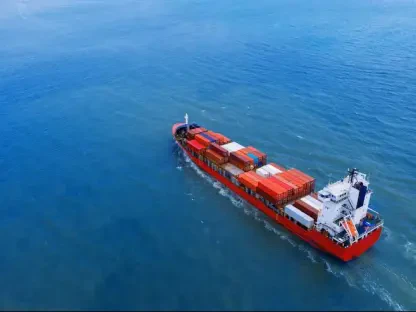The Road Haulage Association (RHA) has escalated its advocacy efforts by challenging the UK’s political party leaders to take a definitive stance on the future of logistics as the General Election looms. Steered by the stark realization that every bite of food, sip of drink, and the shirt on a citizen’s back invariably passes through this intricate network, the RHA’s call to action underscores the high stakes involved. Logistics is the skeletal framework upon which the British economy thrives, and the industry’s health is reflective of the nation’s vitality. The RHA, representing a sector that has long formed the backbone of supply chains, seeks clarity and commitment from those aspiring to govern. Their message is unequivocal: the road to a thriving national economy is paved with robust haulage strategies.
RHA’s Appeal to Political Leaders
Manifesting a proactive stance, the RHA has succinctly outlined its concerns to the leaders of the primary political parties. Richard Burnett, the association’s Managing Director, contends that the productivity and competitiveness of the UK economy pivot on an effective road transport and haulage sector. The discourse highlights logistics as a significant national employer and an economic facilitator whose smooth operation is non-negotiable. With party responses instrumental in shaping the association’s counsel to its stakeholders, the RHA’s outreach is more than a call for attention—it seeks a guarantee of strategic progress and infrastructural support for an industry on which so many sectors depend. Acknowledging that the national election could serve as a turning point for logistics, every declaration or silence from party leaders resonates deeply within the haulage community.The emphasis here is not on short-term fixes but on comprehensive long-term strategies capable of underpinning future growth. Recognizing the symbiotic relationship between the public sector’s vision and the private sector’s execution, the RHA’s query is more than just requesting dialogue—it is an expectant demand for action plans commensurate with logistics’ critical role in the UK’s economy.
Challenges Facing the Logistics Industry
At the heart of the logistics sector’s distress signals are challenges that threaten to throttle its efficiency and effectiveness. A skills shortage looms large, threatening to eviscerate the industry’s very lifeline—its workforce. With an aging population of drivers and fewer entrants to fill the gaps, the potential for a logistical standstill is real and alarming. Not to mention, rising cost pressures continue to suffocate operational margins, leaving many logistics operators grappling with the viability of their businesses.A landscape fraught with these challenges calls for not only recognition but decisive action. In response, the RHA’s Managing Director stresses the importance of securing excellent roadside facilities for drivers—emphasizing the human element that is integral to logistical operations. Political leaders are expected to dissect these urgent matters and articulate clear, actionable strategies that resonate with the road haulage sector’s immediate and evolving needs. As the RHA waits for the replies from party leaders, the future contours of the logistics landscape hang in the balance, waiting to be shaped by the imminent policy directions.
Drive for Sustainability and Electrification
Beyond immediate logistical concerns, sits the epochal shift toward sustainability—a theme tightly woven into the fabric of the industry’s future aspirations. The RHA is steering the conversation towards a “net-zero roadmap,” which is not only environmentally imperative but economically prudent. Engaging with the ideals of green logistics positions the sector as a steward of sustainable practices, aligning with global environmental mandates and societal expectations.The shift toward fleet electrification, an integral component of this green transition, throws up challenges surrounding the regulatory and tax framework that governs electric vans. The Association of Fleet Professionals’ manifesto seeks to unblur the lines, pushing for clarity that will enable logistics operators to invest confidently in electric vehicles. This call for a well-articulated electrification strategy and accompanying regulation is a testament to a sector that is eagerly preparing for a greener tomorrow. As the logistics industry gears up for transformation, it watches the horizon for political manifestos that mirror its ambition for an eco-friendly overhaul.
Setting the Political Agenda for Road Haulage
The countdown to the General Election represents more than a political race—it’s a critical juncture for the UK’s logistics sector to etch its concerns onto the nation’s consciousness. The commitments and strategies that political parties offer could well become a lodestone for stakeholders within the industry. As such, leaders are not only expected to exhibit understanding but also to present tangible plans that bolster economic infrastructure and support the industry’s forward march.This period of anticipation is marked by the logistics community’s close scrutiny of political propositions that might map out their operational landscape for years to come. Potential leaders are called upon to shed light on plans that are both economically sound and environmentally conscious, which would signal their readiness to work alongside logistics operators. It is this collaboration that will underpin the UK’s economic resilience and elevate its supply chain mechanisms.
Industry Stakeholders Await Comprehensive Responses
The RHA’s foray into political advocacy signifies an industry at a fundamental crossroads, eagerly awaiting informed policy direction. The exchange illustrates the mutual benefits that are at play: political parties stand to gain the industry’s support, while logistics operators look to draw concrete policy pillars from the election’s outcome. In the end, detailed responses will serve as a blueprint for the sector’s strategic orientation post-election, influencing alignment and decision-making processes within the community.As the narrative unfolds against the backdrop of political jousting and promises, what comes to the fore is the central prominence of the logistics sector in the conversations that will chart the nation’s course. The amalgamated voice of the RHA and its constituents presents a formidable front—an industry armed with questions and expectations, seeking to draw the attention of those who vow to lead, to the often-unseen veins that keep the life-blood of the economy flowing.









